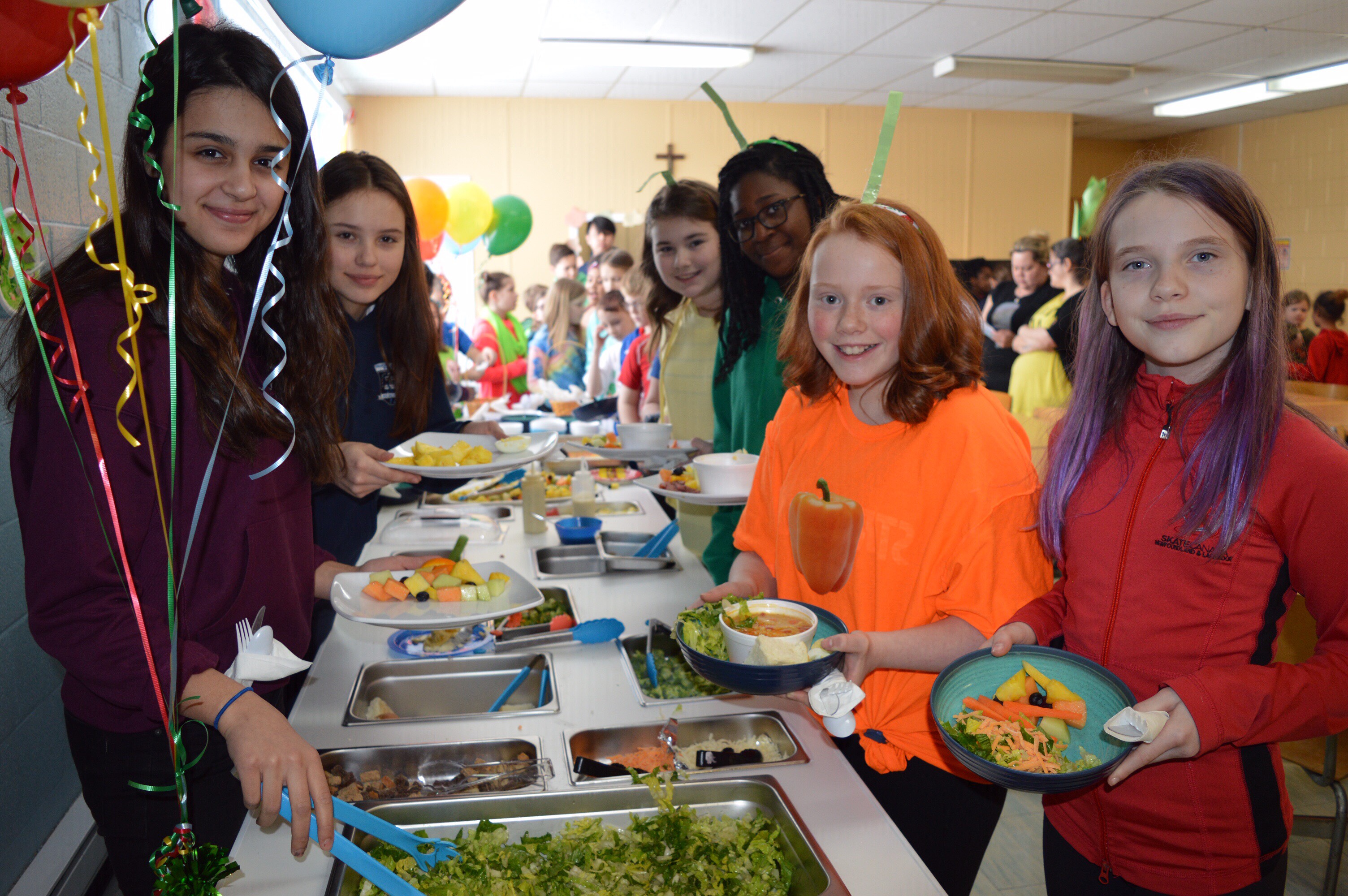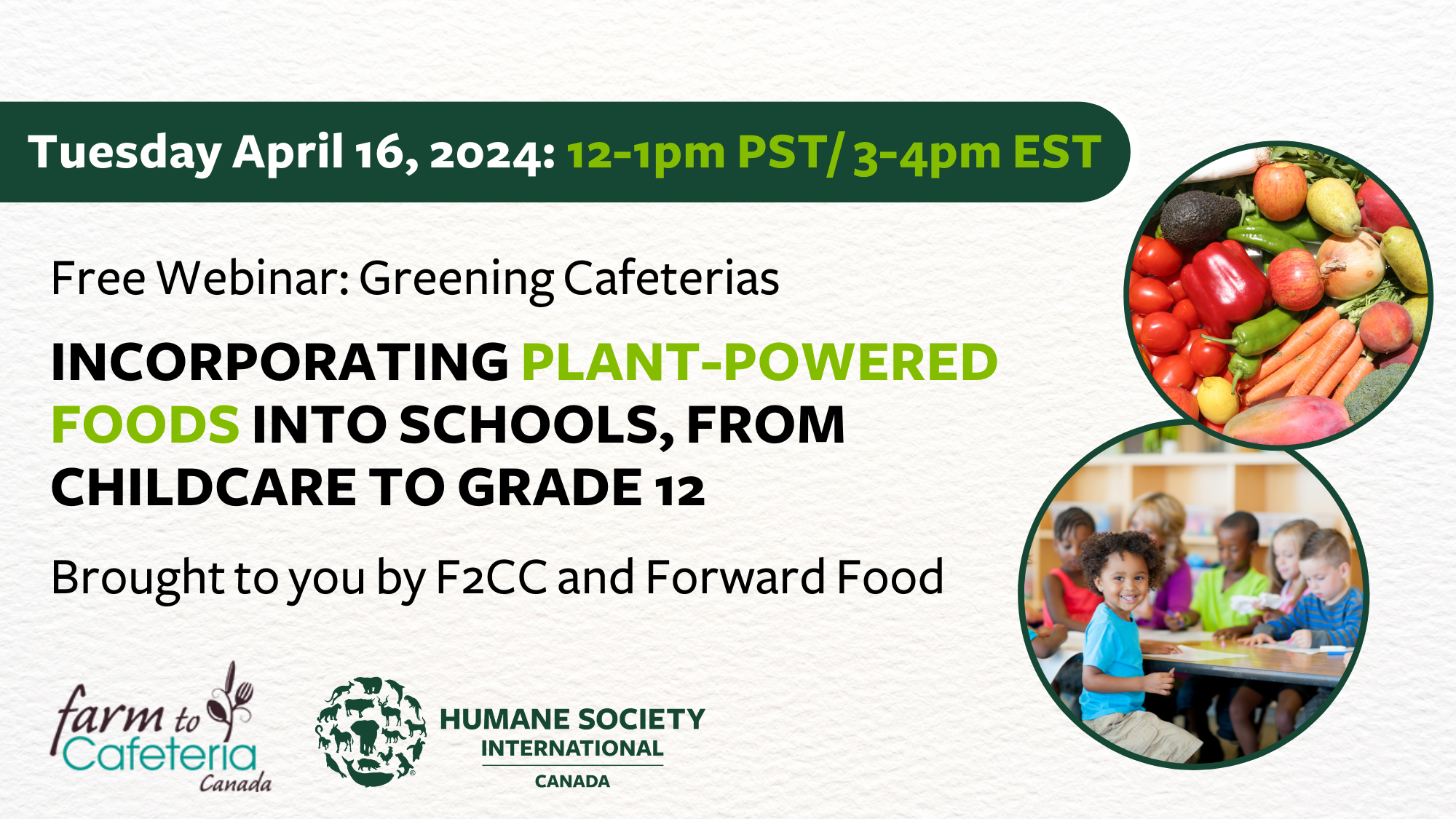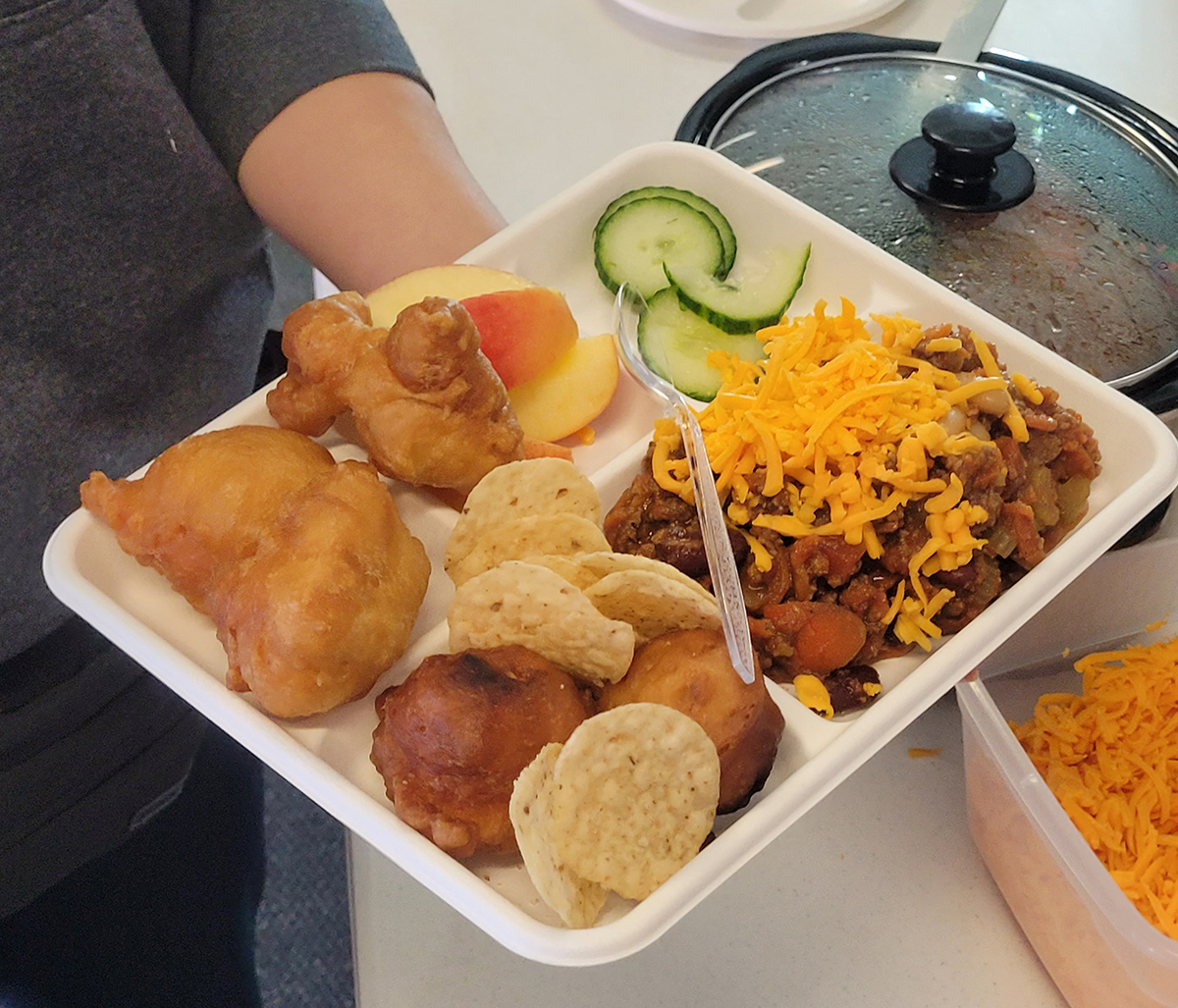Hagersville Secondary School, Hagersville, ON
As a chef and the teacher responsible for the Foods’ Program at Hagersville Secondary School, Sarah Compton has always been excited to share her knowledge about the cooking and purchasing of good fresh foods. This year Sarah, rolled up her sleeves with her students to dig into Farm to School. Their vision? Local food, as much as possible, from start to finish! This is Sarah’s Farm to School story, year 1.
Hagersville is a small town in rural southwestern Ontario, surrounded by farms and some production greenhouses. Over the years Haggersville Secondary School has been working hard to close the distance between those farms and student plates.
We have developed relationships with a number of local farmers and food producers. Many of the people who supply food for our cafeteria were met at our local Farmer’s market. We visited a local farmer’s greenhouse last spring. This greenhouse business became one of our community partners as well as a supplier of our Community Shared Agriculture boxes. We also butcher our own sides of animals, purchased from local farmers.
We are big on preserving Ontario’s bounty when foods are in season. We make our own pickles, salsa, pesto and pizza/tomato sauce and we freeze fruits such as berries, peaches and apples. Last year we preserved 25 bushels of tomatoes. (However we already know we will have to up that amount next year as we ran out before the end of the year).
Because Hagersville Secondary has a greenhouse, our Environmental Sciences and Special Education classes were challenged two years ago to begin growing fresh herbs and greens we could serve in our cafeteria. It’s been a learning curve with some big successes (our herbs and greens), some pretty good results (our greenhouse tomatoes) and some disasters ( snow peas; they shot up, then got white fly, and then they died)
We have always offered a daily made up salad in the cafeteria but this is the first year we have operated a daily salad bar. I must admit, it has been met with mixed success. Although it is extremely popular with our staff, our students are not flocking there. While we have even tried running a taco salad bar, it just doesn’t sell as well as if we put taco salad on the menu. We know the students will have the answers to the slow start for the salad bar, so we are planning on running a survey at the end of the year to try and figure out next steps.
In preparation for next year, we planted 10 types of garlic for our HSS Glorious Garlic business which we will sell at the Farmer’s Market and use in the fall, and the scapes will be sautéed up in some delicious concoction when they appear. We have also cleared and expanded three beds outside the greenhouse where we are growing potatoes, tomatoes, herbs, greens, many kinds of hot peppers and squash. Next year, we hope to install an outside tap and dig out a larger plot for a Community Garden. The greenhouse has a worm composter to deal with all the trimmings. Closing the food cycle, we even found a local pig farmer to take all our food scraps.
While we still need to figure out how to make the salad bar the star, we’re pretty happy with the way students are loving local. Being conscious of where our purchases come from as well as developing relationships with local farmers has meant that we have doubled our use of Ontario grown over the last year and a half. We are challenging ourselves to get it even higher next year!




